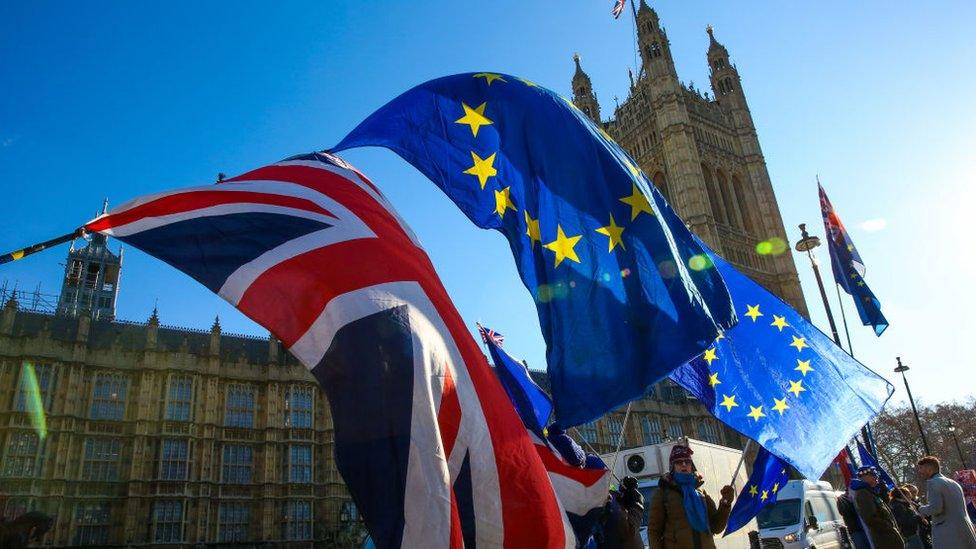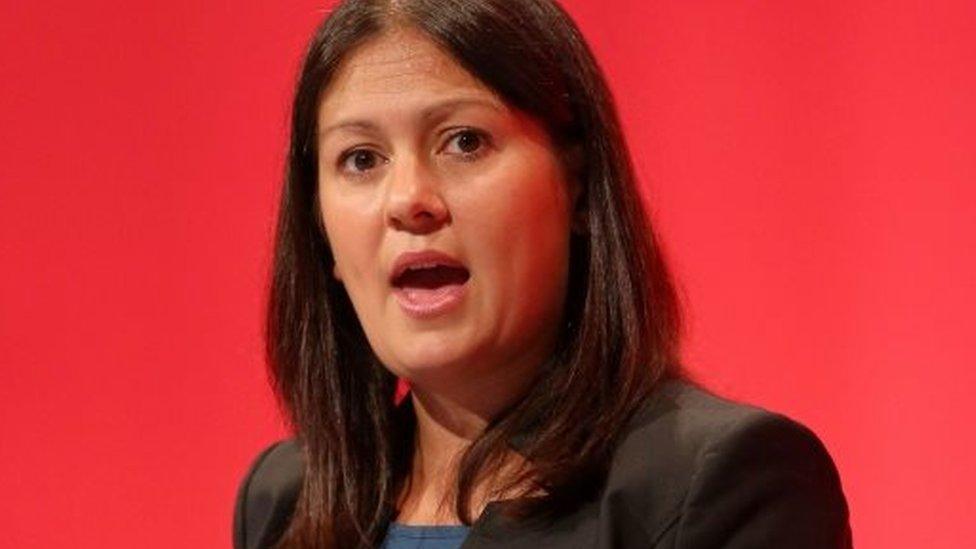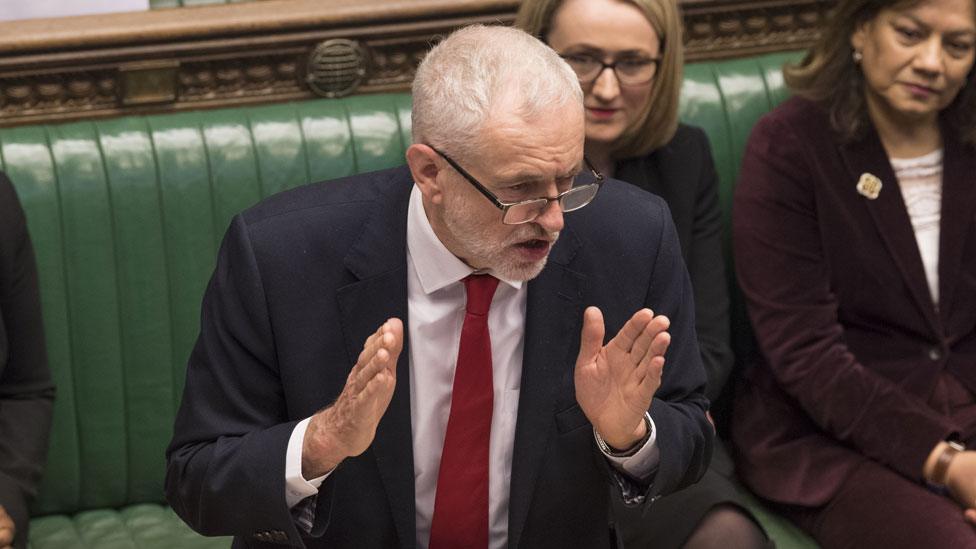Attempts to win Labour support for Brexit deal intensifies
- Published

The government is likely to publish a new employment bill before the next vote on Theresa May's Brexit deal.
The aim is to maximise the number of Labour MPs prepared to back the prime minister's deal - even if it continues to exclude demands for a customs union.
About a dozen Labour MPs from Leave-voting areas have discussed workers' rights and the need to guarantee regional aid funds with Mrs May.
But Whitehall sources say "something more concrete" to get Labour support.
Some Labour MPs have been pressing for an employment bill before the "meaningful vote" - and I understand the scope of that bill is being seriously discussed behind closed doors.
Last Thursday, trade union officials were in discussions with civil servants in Whitehall - and were joined by Business Secretary Greg Clark.
Some issues of concern to trade unions - such as the ability to conduct workplace ballots or electronic rather than costly postal voting - are up for discussion.
However, trade union sources are suggesting other areas of concern - such as the use and regulation of agency of workers - have not been adequately addressed.
Nonetheless, there seems to be a serious discussion within government on how wide-ranging an employment bill would have to be to entice more opposition MPs to back the government.
The Labour MP for Wigan, Lisa Nandy, told BBC Radio 5 Live that 40 to 60 of her colleagues might back the government if there were more substantial changes to the deal.
She said: "Things are starting to move in a way that I haven't seen for three years. Dialogue has finally started to happen."
But it's important to introduce a note of scepticism.

Labour MP Lisa Nandy said 40 to 60 of her colleagues might back the government if there were changes to the deal
Last week's rebellion on Labour's benches - against the attempt to extend Article 50 - consisted of 25 MPs. And at least two of them are minded to oppose the government in the meaningful vote come what may.
But more importantly, some unions and Labour MPs from Leave areas are sceptical that the government can deliver on any promises it makes.
They say that while Conservative backbenchers might swallow the need for a "level playing field" with the EU on workers' rights, many of them might well rebel if asked to concede further trade union and opposition demands.
So the mere act of the prime minister building support on the left might simultaneously demolish it on the right.
Tricky.
- Published30 December 2020

- Published31 January 2019
